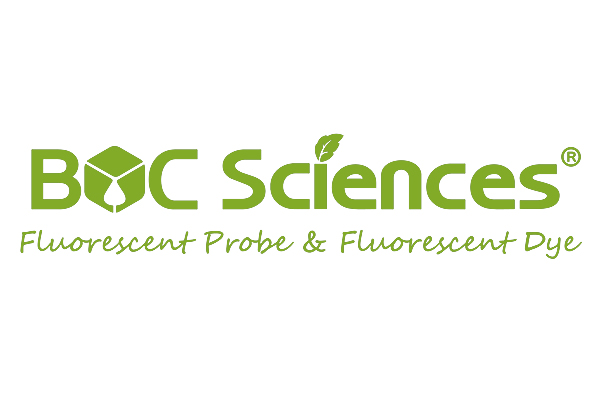
Hoechst 34580 tetrahydrochloride
| Catalog Number | A19-0044 |
| Category | DNA Stains |
| Molecular Formula | C27H33Cl4N7 |
| Molecular Weight | 597.41 |
* Please be kindly noted products are not for therapeutic use. We do not sell to patients.
Product Introduction
A salt form of Hoechst 34580 offering enhanced solubility and stability. Suitable for fixed and live-cell nuclear staining.
Chemical Information
Product Specification
Application
Computed Properties
| Synonyms | N,N-dimethyl-4-[6-[6-(4-methylpiperazin-1-yl)-1H-benzimidazol-2-yl]-1H-benzimidazol-2-yl]aniline tetrahydrochloride; Hoechst 34580 (tetrahydrochloride) |
| IUPAC Name | N,N-dimethyl-4-[6-[6-(4-methylpiperazin-1-yl)-1H-benzimidazol-2-yl]-1H-benzimidazol-2-yl]aniline;tetrahydrochloride |
| Canonical SMILES | CN1CCN(CC1)C2=CC3=C(C=C2)N=C(N3)C4=CC5=C(C=C4)N=C(N5)C6=CC=C(C=C6)N(C)C.Cl.Cl.Cl.Cl |
| InChI | InChI=1S/C27H29N7.4ClH/c1-32(2)20-7-4-18(5-8-20)26-28-22-10-6-19(16-24(22)30-26)27-29-23-11-9-21(17-25(23)31-27)34-14-12-33(3)13-15-34;;;;/h4-11,16-17H,12-15H2,1-3H3,(H,28,30)(H,29,31);4*1H |
| InChIKey | CLWSVNOLFQKMQY-UHFFFAOYSA-N |
| Storage | Store at -20°C |
Hoechst 34580 tetrahydrochloride, a fluorescent dye prized for its DNA-staining abilities, finds manifold applications in various biological contexts. Here are four key applications of Hoechst 34580 tetrahydrochloride:
Cell Cycle Analysis: Widely employed in live or fixed cells, Hoechst 34580 acts as a beacon, illuminating DNA for cell cycle assessment using flow cytometry. By discerning cells in diverse stages of the cell cycle, researchers delve into cell proliferation dynamics and unearth signs of cell cycle irregularities. This practice is pivotal in cancer investigations and pharmaceutical endeavors, shedding light on the effectiveness of cell cycle modulators.
Fluorescence Microscopy: Emboldening fluorescence microscopy endeavors, Hoechst 34580 grants researchers a window into the intricate world of cellular DNA visualization. Offering intricate snapshots of the cell nucleus, this dye aids in dissecting nuclear structures, chromatin configurations, and cell division processes. A marriage with other fluorescent markers engenders multi-hued imagery, facilitating in-depth cellular explorations of staggering complexity.
Apoptosis Detection: With a keen eye on nuclear alterations, Hoechst 34580 detection unveils apoptotic cells through distinctive chromatin modifications like condensation and fragmentation. This diagnostic tool proves invaluable in unraveling programmed cell demise mechanisms and assessing the impacts of apoptotic triggers. Pioneering researchers leverage this method to sift through compounds that hold potential in either sparking or hindering apoptosis in disease scenarios.
Kinetoplast and Mitochondrial DNA Staining: Harnessed for its prowess in illuminating mitochondrial DNA and kinetoplasts in diverse organisms, Hoechst 34580 aids in unraveling the intricacies of mitochondrial dynamics and inheritance alongside energy metabolism functions. Delving into these pivotal cellular components is vital for comprehending mitochondrial maladies and forging targeted treatment strategies.
| Hydrogen Bond Donor Count | 6 |
| Hydrogen Bond Acceptor Count | 5 |
| Rotatable Bond Count | 4 |
| Exact Mass | 597.152205 g/mol |
| Monoisotopic Mass | 595.155155 g/mol |
| Topological Polar Surface Area | 67.1Ų |
| Heavy Atom Count | 38 |
| Formal Charge | 0 |
| Complexity | 672 |
| Isotope Atom Count | 0 |
| Defined Atom Stereocenter Count | 0 |
| Undefined Atom Stereocenter Count | 0 |
| Defined Bond Stereocenter Count | 0 |
| Undefined Bond Stereocenter Count | 0 |
| Covalently-Bonded Unit Count | 5 |
| Compound Is Canonicalized | Yes |
Recommended Services
Recommended Articles

- Hoechst Dyes: Definition, Structure, Mechanism and Applications
- Mastering the Spectrum: A Comprehensive Guide to Cy3 and Cy5 Dyes
- Fluorescent Probes: Definition, Structure, Types and Application
- Fluorescent Dyes: Definition, Mechanism, Types and Application
- Coumarin Dyes: Definition, Structure, Benefits, Synthesis and Uses
- Unlocking the Power of Fluorescence Imaging: A Comprehensive Guide
- Cell Imaging: Definitions, Systems, Protocols, Dyes, and Applications
- Lipid Staining: Definition, Principles, Methods, Dyes, and Uses
- Flow Cytometry: Definition, Principles, Protocols, Dyes, and Uses
- Nucleic Acid Staining: Definition, Principles, Dyes, Procedures, and Uses
Recommended Products
Online Inquiry


![3-Methyl-2-((1-(3-(trimethylammonio)propyl)pyridin-4(1H)-ylidene)methyl)benzo[d]oxazol-3-ium iodide](https://resource.bocsci.com/structure/157199-56-9.gif)










